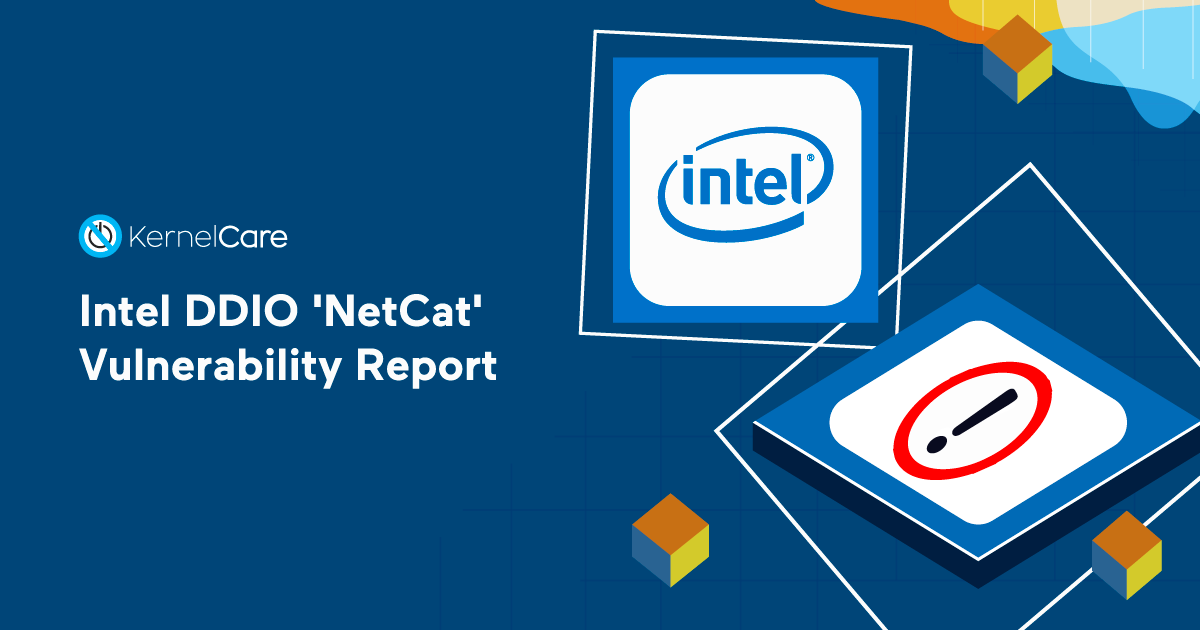Intel DDIO ‘NetCat’ Vulnerability Report

Update from 09/19/2019:
After investigating the reported CVE, we figure out that it is a pure hardware issue and there will be no patches for this vulnerability.
We’d like to let you know that we’re aware of the latest NetCat vulnerability report (CVE-2019-11184) for Intel processors. This vulnerability relies on Intel’s Data Direct IO (DDIO) technology, a performance-enhancing feature that allows network devices access to the CPU cache data. The researchers found they could use Intel’s Remote Direct Memory Access feature (RDMA) and statistical analysis of packet data to reveal shared cache data.
Our team is watching this issue and preparing for further upstream developments. We’ll post more information when we have it. Watch this blog or our twitter feed @KernelCare.
Read more:
- Zombieload 2: KernelCare Team is on it!
- Zombieload 2: The Patches for CVE-2018-12207 are in the Test Feed!
- SWAPGS: KernelCare patches on the way
- RIDL – Another MDS Attack that Live Patching Would Have Saved You From
- QEMU-KVM vhost/vhost_net Guest to Host Kernel Escape Vulnerability
- New vulnerability found in Linux kernel, patched by KernelCare
- SACK Panic & Slowness: KernelCare Live Patches Are Here
- L1 Terminal Fault (L1TF) patches are available
- Fallout – the MDS Side Channel Attack That Isn’t Zombieload
About KernelCare
KernelCare is a live patching system that patches Linux kernel vulnerabilities automatically, with no reboots. It’s used on over 300,000 servers, and has been used to patch servers running for 6+ years. It works with all major Linux distributions, such as RHEL, CentOS, Amazon Linux, and Ubuntu. It also interoperates with common vulnerability scanners such as Nessus, Tenable, Rapid7, and Qualys. To talk with a consultant about how KernelCare might meet your enterprise’s specific needs, contact us directly at [email protected].

 Documentation
Documentation Login
Login



